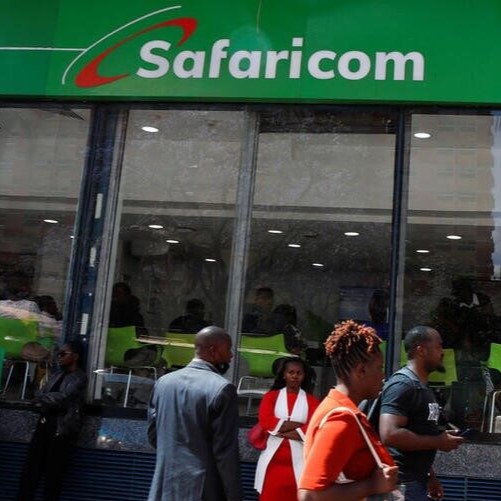
Safaricom and the Kenya Bankers Association (KBA) have put forward a proposal advocating for Pesalink to serve as Kenya’s next-generation Fast Payment System (FPS). They argue that leveraging an industry-led solution will enhance efficiency, streamline digital transactions, and reduce reliance on multiple private payment switches.
The joint proposal suggests upgrading Pesalink’s existing infrastructure rather than developing a completely new FPS, which they estimate would require at least $200 million (KES 25.9 billion) and up to four years to build. Instead, enhancing Pesalink would allow for a faster and more cost-effective rollout of an integrated payment system.
Pesalink, which is operated by KBA through Integrated Payment Services Limited (IPSL), currently facilitates transactions worth $8.5 billion (KES 1.1 trillion) in Kenya’s digital payments space. According to the proposal, positioning Pesalink as the national FPS would enable seamless team work across banks, mobile money operators like M-Pesa, SACCOs, and fintech platforms.
This move is intended to bridge the division in Kenya’s financial ecosystem, where mobile money platforms and traditional banking institutions often operate in silos, leading to inconsistent transaction fees and varying service quality. “In this scenario, CBK, banks, mobile money operators, switches, SACCOs, and fintechs would use an existing industry player. IPSL would be designated as the FPS, implementing necessary changes to ensure neutrality and interoperability,” the proposal states.
Safaricom and KBA emphasize that building a new FPS from scratch would not only be expensive but also time-consuming. Pesalink already provides a functional infrastructure, which could meet national payment system requirements at a significantly lower cost with necessary upgrades.
However, the proposal acknowledges that Pesalink must be enhanced to handle at least 6,000 transactions per second, along with improved security, risk management, and expanded team work across Kenya’s diverse financial platforms.

While Safaricom and KBA strongly advocate for Pesalink, they recognize that alternative models exist. One such approach is Colombia’s multi-switch system, where several private operators function under a centralized regulator like the Central Bank of Kenya (CBK). Although this model could offer cost advantages, the proposal warns that multiple switches could lead to governance challenges and inconsistencies in service quality. A unified system under Pesalink, on the other hand, would simplify oversight and align with CBK’s vision for an integrated and efficient digital payments ecosystem. “A more integrated payments ecosystem would support the growth of Kenya’s digital economy by making it easier for businesses and individuals to transact across different platforms. This aligns with CBK’s vision for a unified and interoperable payments system, potentially simplifying regulatory oversight,” said Ali Hussein Kassim, Chairman of the Association of FinTechs in Kenya.
The Central Bank of Kenya (CBK) has yet to make a decision on the proposed FPS model, but there is growing support for leveraging Pesalink’s existing framework. If the proposal is approved, Pesalink will undergo significant upgrades to accommodate increasing digital transaction volumes and enable cross-platform payments between banks, mobile money services, and fintechs.
This development could redefine Kenya’s digital payments landscape, ensuring greater efficiency, lower transaction costs, and improved financial inclusion across the country.


